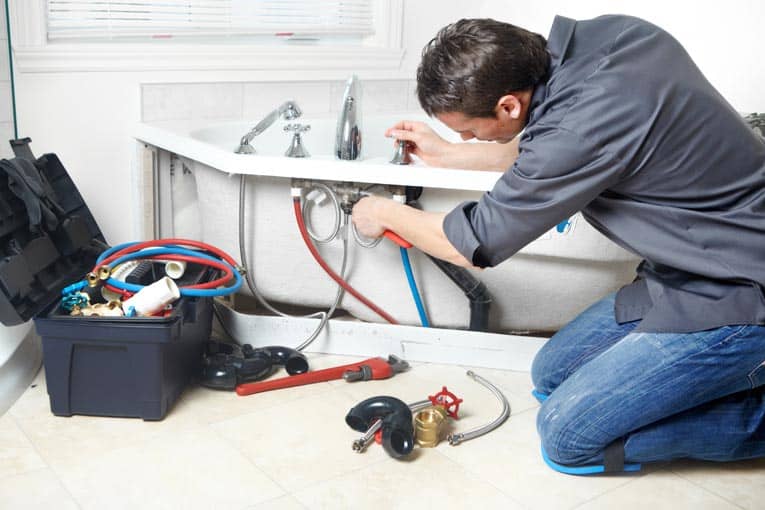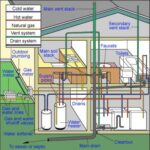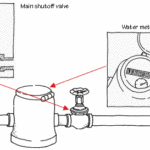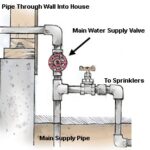In This Article:
A home’s plumbing system consists of a complex system of pipes and fixtures that—hopefully—work together to provide clean water, safe disposal of wastes, and more. Because a plumbing system involves home and public safety, its design is strictly regulated by building codes, and plumbers are regulated, licensed, and credentialed to ensure proper workmanship.
This doesn’t mean you can’t do you own plumbing. In fact, here at HomeTips, you’ll find step-by-step instruction for many DIY plumbing jobs. But know-how, plumbing skills, and the proper tools are critical to a plumbing project’s success. If you don’t have the right tools for the job or the time, fortitude, and experience to correctly do the job yourself, hire a plumber.
But don’t hire just any plumber—hire the right plumber—a plumber who will do the job safely, correctly, and relatively affordably so the project doesn’t become an expensive disaster. Once you find The Right plumber, keep his number handy—it will be worth it’s weight in gold the next time you encounter an urgent plumbing problem in your home.
When hiring a plumber, your job is to find the right one and oversee the quality of workmanship.
Here’s what you should know:
What Makes a Good Plumber?
A good plumber needs to have several things. When interviewing potential plumbers, find out whether he or she has the following:
License. Most states (44 of them) require working plumbers to be licensed. In addition to a license, a good plumber should have a clean complaint record. Find out whether any formal complaints have been filed against them or their company. You can visit your state’s government website to see whether it offers the ability to check for active licenses and complaints—or discover whether they have a phone number you can call. Angie’s List also offers a License Check tool at this url: https://www.angieslist.com/articles/angies-list-license-check.htm
The Better Business Bureau is another source to check regarding complaints.
Insurance. Though you may have homeowner’s insurance that offers some level of protection, your plumber should have workman’s compensation and at least $500,000 of liability insurance to protect both you and the plumber in the event he, she, or a worker is injured on the job at your home.
Experience. Find out how long the plumber’s business has been in operation, and how many years of experience the person who will be doing the work has. It takes several years for most good plumbers to acquire their knowledge and skills. For more about skills, see Types of Plumbers, below.
References. Ask a potential plumber for references of people for whom he or she has done work. Then call those customers to find out if they were happy with the work or had complaints.
Warranty. Only work with a plumber who will guarantee his or her work and the parts for at least a year.
Social Skills. This one is a little tricky, but important to consider. It helps to have a plumber who can communicate clearly with you, is trustworthy, and has good work habits, such as maintaining a clean work environment, protecting your home’s floors, showing up on time, and so forth.
How to Find a Good Plumber
You can find a plumber from personal referrals, online services, the Yellow Pages, or from newspaper ads and the like. Some of these sources are vastly better than others.
Personal Referrals. Nothing beats a personal referral when you’re shopping for a plumber. If you know someone who has had plumbing work done recently and was happy with the plumber who did the work, ask for that plumber’s contact information. Other people to ask include remodeling contractors and real estate agents.
Online Referral Services. Online referrals have become a really big business in recent years. Sites such as Home Advisor, Angie’s List, Networx, and many more provide free access to their network of plumbers, contractors, and other service professionals. These sites either use crowd-sourced reviews or in-house vetting to qualify their listed professionals. You plug in your zip code and a few details about your job, and your phone begins to ring with calls from pros, in most case. Here is a link to Networx, our preferred partner: Find a Reliable Local Plumbers.
Print Ads. Whether in the Yellow Pages or your local newspaper, print ads generally are not a reliable measure of good plumbers or contractors. Though companies with big advertising budgets may be large companies, that isn’t always true, or necessarily a plus. And companies with big ad budgets have to build those costs into their bids. Most really great trades people don’t have to advertise at all—their reputations spread by word-of-mouth, and they stay very busy.
Types of Plumbers
When searching for a plumber, you’ll encounter two main types—plumbing contractors who specialize in installing all of the plumbing for a home-building or remodeling project, and plumbers who focus on repairing existing plumbing systems.
The competency of a plumber is designated by one of three credentials: apprentice, journeyman, or master plumber.
Here is how these trade credentials differ:
An apprentice plumber is training with a union or nonunion contractor organization. Training consists of both classroom instruction and paid hands-on work. The apprentice is typically the “go-for” who works alongside a journeyman or master plumber.
Journeyman plumbers have fulfilled the requirements of apprenticeship and obtained a state journeyman license. A journeyman plumber can do most kinds of plumbing work, but most don’t operate their own business.
A master plumber, the most qualified, must have worked several years as a journeyman, usually has an associate’s degree from a vocational school, and must pass written and hands-on exams. In most states, master plumbers are required to complete several hours of continuing education each year. Master plumbers are qualified to run their own businesses in addition to handling all types of plumbing jobs.








 Don Vandervort writes or edits every article at HomeTips. Don has:
Don Vandervort writes or edits every article at HomeTips. Don has:




